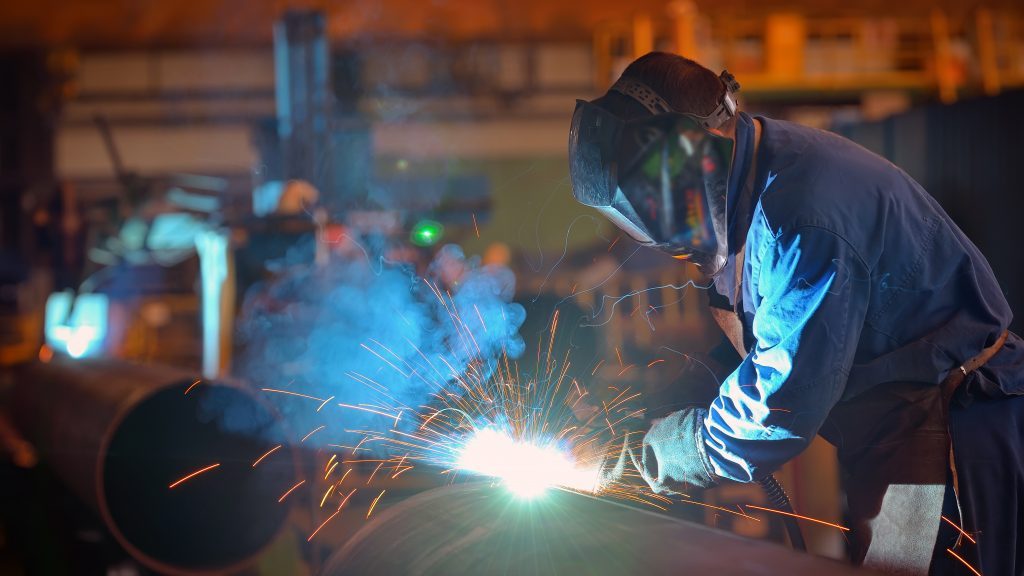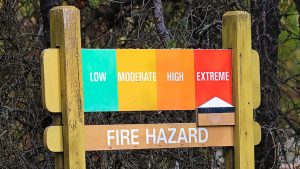The Mechanical Contractors Association of B.C. (MCABC) would like to see more consultation between government regulatory bodies such as Technical Safety BC (TSBC) as a result of ministerial order changes which have taken the industry by surprise. One such change introduces a new licensed pressure welder contractor’s licence.
“We were not consulted,” said Dana Taylor, vice-president of the MCABC, who also checked emails back to the late summer of last year but was unsuccessful in finding any communications notifying the association of the new changes that are being phased in from late 2018 to the end of 2019. The order impacts several sets of regulations that impact the building trades.
“If you are not invited to the party, it is difficult to engage,” Taylor said, adding that associations would like to contribute to the dialogue regarding regulation changes and, while this occurred at one time in the industry, past governments have essentially phased this out, ignoring both the industry expertise and the help associations can give in implementing change.
The changes, which are not common knowledge in the construction industry, are outlined in Ministerial Order M317, which amends the Power Engineers, Boiler, Pressure Vessel and Refrigeration Safety Regulation, the Electrical Safety Regulation, the Elevating Devices Safety Regulation, the Gas Safety Regulation, and the Safety Standards General Regulation, was signed and deposited. The changes implement changes in two phases.
Effective August 31, 2108 the following regulations were enacted. A new class of contractor licence was created for pressure welders (however, not yet instituted). Persons signing a declaration by regulation or the Safety Standards Act must have physically inspected the work and believe it complies. Registered designs found to be defective cannot be used or installed. Names of manufacturers must be submitted with registered designs. Refrigeration and Boiler Safety Awareness certificates of qualification will be issued without naming a specific plant on the certification and certified individuals will require plant training safety training prior to starting work. Plant owners must keep lists of certified individuals, work, duties and certificates of qualification.
Effective December 3 of this year, TSBC will bring into effect a new pressure welder certificate of qualification system. Currently, certified welders test for pressure welding procedures tests in B.C. (PWP) BCP-100, which are administered by TSBC.
The pressure welder certificate of qualification will apply to all persons performing regulated pressure welding
— Technical Safety BC
Mechanical contractors, unions, and schools contacted by the Journal were not familiar with the ministerial changes, especially those that impact pressure welders and certification.
Technical Safety BC has issued some information on the new pressure welder licence entitled “Class PW” which enables a contractor to perform a specific scope of activities. “This change clarifies who may register a welding or brazing procedure by allowing companies and individuals working on pressure equipment to obtain a more limited scope of licence for their work. Under the new PW licence class, subcontractors and companies with in-house welding expertise will be able to register weld procedures without needing a full Class A boiler contractor licence.”
TSBC is currently developing the processes to implement this new licence.
A TSBC spokesperson said in an email that the new class of licence was issued to accommodate a subcontracting market. “Many contractors subcontract welding services because of lack of in-house expertise or resources. The PW licence provides the ability to the subcontracted welder to perform pressure welding procedures,” the email said, adding that those wanting a PW licence will apply online and there will be an annual renewal fee. The email said TSBC is currently implementing a quality assurance program to ensure the integrity of the licensing. However, it had no details available yet on the program or the process of implementing the licence.
Another significant change now in effect under the Safety Standards General Regulations is that work must now be physically inspected rather than just signed off closing a gap in the old regulations. The TSBC email said there was no expressed requirement for certificate holders to physically inspect an installation to declare compliance with the regulations and make a declaration in good faith that the work complies. Other than pressure welders, certified field safety representatives in electrical, certified gas fitters, and certified elevating device mechanics are all required to do a physical inspection before submitting a declaration, according TSBC.
Also, as of December 3, changes in pressure welder qualification certificates — granted to individuals who meet both the journeyman or apprenticeship requirements and work for a licensed contractor — will take place. “There are three classes of pressure welder — class A, class IT, and class R. The pressure welder certificate of qualification will apply to all persons performing regulated pressure welding,” TSBC said via email.
The conditions under which the individuals can work with the certificates of qualification are set out in the Power Engineers, Boiler, Pressure Vessel, and Refrigerator Safety Regulations amendments.
A class A certified welder may perform work under a licensed company; a class IT welder may perform work under the supervision of an individual holding a class A certified welder, while a class R certificate of qualification allows that individual to only perform pressure welding for the licensed contractor named on the certificate for a period of up to six months from the date the certificate is issued.
Bernard Booth, RSE, a Level A welding instructor and a certified welding inspector at the UA Piping Industry College of B.C., said he had not previously seen the changes. He voiced concerns regarding the new pressure contractor licence being proposed. The current system of training relies upon the individual carrying the competency or level of expertise to weld pipes or vessels that must perform under pressure. The new designation, he said, seemingly transfers some of that responsibility to contractors or companies.
Booth said it is also unclear how such contractors would maintain the level of expertise required. A senior journeyman could show less skilled or apprentice how to do the work, but that would not guarantee that the journeyman would remain on site supervising the work performed or that adequate inspections of the work was carried. “I am concerned about the public’s safety,” he said.
At the same time the new certification and licensing process is being instituted, the college – and other training institutions – are currently working to harmonizing the training system for pressure welders with other systems across Canada providing greater mobility for skilled individuals. The older system using A, B and C levels of certification with A as the highest rating for a journey person. The new harmonized system has four levels with C now replaced with Level 1 and 2 and considered the entry stage for an apprentice.
Booth expressed disappointment that there was not more consultation with training facilities. The college has three campuses and is the major training facility for Local 170 which represents welders.
One mechanical contractor manager contacted had heard of the ministerial changes, but was not sure how they would be implemented. Thom Meier, general manager of 101 Industries in Kitimat, said he had heard of the new licence and the new certification process relating to pressure welders, but there was no explanation of why the changes or when those changes would be implemented.
“The new contractor licence is more for the smaller independent contractors, I suspect,” he said, as it appears to provide them with easier access to welders without having to have a full A rating. Meier said he is understands TSBC is still putting together the process for the certification system it will bring in at the beginning of December.
At one time, he said, regulatory bodies would send out letters to contractors affected or even a flyer by mail but today, emails are often used and mass mailings can land in the trash file unseen. It makes the role of association also important in monitoring what happens regarding regulatory changes. “We usually rely upon the Mechanical Contractors Association,” he said.











Recent Comments
comments for this post are closed